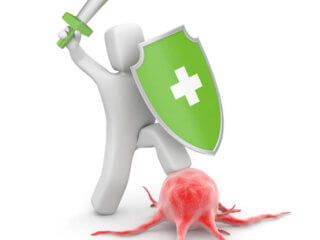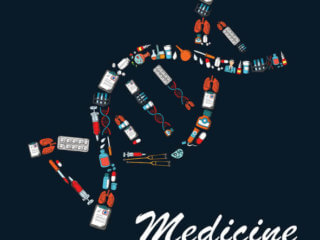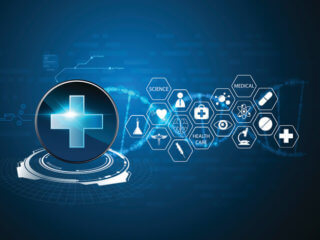In ‘digital prevention,’ digital health technologies such as big data, healthIT, eHealth, mHealth, and gamification are employed to provide health care optimally. While the application of digital health technological tools in preventive health care have shown tremendous advantages and improvements in primary health care and patient outcomes, many health professionals and institutions still struggle in adapting these sophisticated tools in clinical practices. With the rapidly advancing digital health technologies and diversifying their applications in digital prevention, health care professionals should be highly informed, educated and confident in using them to achieve their maximum usage. This also emphasizes the need for proper communication between doctors and IT professionals. Below are five reasons why digital prevention needs a dialogue between doctors and IT professionals.
5 Reasons why digital prevention needs a dialogue between doctors and IT professionals
| Recommended for you | |
| Convergence of preventive health care | |
| 13 Themes of preventive medicine | |
| Preventive health care is the solution and vision for future |
1. Doctors and IT professionals speak different languages on digital prevention. It is the time they adopt a ‘shared language.’
Effective communication between health care professionals and their collaborative partners that include healthIT professionals or more commonly known ‘chief information officers (CIOs)’ has become essential for patient safety, cost-effective patient care, improved patient outcomes and efficient health care [1, 2]. Especially in the case of using digital health tools in day-to-day clinical practices, it is vital that the doctors understand the IT language spoken by CIOs. Studies have indicated that poor understanding and lack of a shared language are the main reasons for failures and limitations of information technology systems [3]. Highly technical language or IT jargon may overwhelm or even confuse the doctors and prevent the meaningful use of the technology. On the other hand, doctors and other health care professionals may lack the ability to articulate what their expectations in a digital health tool. Therefore, it has become an urgent need to mediate ‘shared language’ or ‘shared vocabulary’ for IT professionals and health industry [4]. Traditional CIOs seek more knowledge on how their IT skills can be utilized in health care [5], and physicians are in fact in a position where they can educate CIOs to better fit into health care setting.
2. Digital skills and education for doctors and emerging health care professionals are in demand
As digital literacy among health care professionals is becoming a necessity rather than an option, formal education of physicians and nurses in medical informatics is being initiated by many educational institutes. For instance, the American Medical Association recently launched an initiative known as ‘Accelerating Change in Medical Education,’ which incorporates the teaching of digital technology in medical education [6]. Proper implementation of similar initiatives would require the incorporation of IT professionals to mentorship/educator roles in health care education programs. The role of IT professionals as educators does not have to be restricted to formal education either. In the future, in addition to pharmaceutical representatives, one can envision the emergence of ‘informatics representatives’ who could educate medical professionals about technological advances in various health care fields, while advertising products from particular tech firms. Many doctors are embracing digital health technologies, but at their own pace as they need proper education and knowledge to trust these tools[7]. For this reason, The Oxford University Press reported that many doctors spend the significant amount of time online self-educating and attempting to learn more about digital health technologies [7]. This time can be reduced by collaborative educational efforts between IT professionals and doctors.
3. To enhance the day-to-day operations of medical institutes and remote facilities
With the increasing and imminent percolation of digital technologies into an essential service of medical institutions, low-level clerical positions might be replaced by a new generation of ‘health informatics specialists.’ This personnel would be able to operate, maintain and develop electronic databases and software that are now being used to record patient intake, medical/equipment inventory, etc. This integration of informatics specialist would ensure the smooth operation of software/databases that have become critical for day-to-day operations of hospitals and clinics. It would also assist in the efficient communication of medical data between platforms and various institutes at which patient data is collected, commonly discussed as ‘interoperational challenges in digital health care.’ Telemedicine and telecommunications play a critical role in the success of rural/remote health care, especially in cases where the substantial presence of physicians is lacking. In such cases, digital communication and web-based access to medical data are crucial for optimal health care practices. As such, the presence of informatics specialists in remote facilities is an emerging necessity to ensure the maintenance of digital technologies in rural/remote medical services. They could also be involved in the education of nursing staff, who often take on advanced responsibilities and duties in rural/remote sites [8].
4. HealthIT professionals do more than being ‘just IT guy’
Traditionally, IT professionals are just ‘IT guys’ who help out with computers and programs. However, with the revolutions of digital health technologies, the role of health IT professionals go beyond the ‘IT guy.’ They are more referred to as CIOs, ‘chief digital information officers (CDIO)’ or ‘IT directors’ who bring more strategies, leadership and executive skills to the table [9]. Currently, their strategic abilities are mostly underutilized in the health care setting. Especially in digital prevention health care settings which have merged large-scale and state-of-the-art digital tools into their infrastructure requires the guidance of healthIT professions or more accurately CIOs to ensure proper use and functions of these tools. Therefore, collaborations between CIOs and doctors is essential. Moreover, within a health care setting new roles for IT professionals have emerged such as innovation and technology officers, data officers, medical information officers, analysts and researchers [10, 11]. Doctors can get help from each of these IT officers at different stages of primary health care. These agents are highly essential for the transformation of the intuitional infrastructure to incorporate digital health tools and guide all the health care professionals including doctors of the meaningful use of technology. Moreover, new digital technologies should be evaluated, improved, established and maintained in a way that is most suitable for a best clinical outcome. The communication between doctors and other health care professionals who are always testing these technologies should be in touch with the IT professionals to keep the current functionality of these tools.
5. Ensure development of physician-friendly, patient-focused and meaningfully used digital health tools
Dr. Donald Burt in an article written in 2011 says that “physicians love a CIO who enables them to focus on their patients, not technology” [12]. He believes that CIOs should design new health-related software keeping in mind that doctors are not IT professionals and thus some aspects of the digital tools may distract, complicate or even unproductive. Therefore, it is critical and essential that CIOs collaborate with doctors and gain ‘physician’s point of view’ regarding ‘meaningful functionality’ of the tools they develop. Surveys conducted by the Economist Intelligence unit in the UK identified that the behavioral changes of health care professionals with accelerating IT tools could be better managed with proper training and education provided to them by CIOs [11]. ‘Meaningful Use’ of digital health tool has become a rather critical criterion – in a digital era where numerous health Apps and software are being developed daily – which can only be established with the proper convergence of the skills of CIOs and doctors. While many doctors would like to have digital health care tools being set up in their clinical setting, they also believe that their health institution may not be able to afford these technologies. In such cases, CIOs can aid doctors and management to choose more appropriate and cost-effective technologies [11,13]. They can also provide strategic plans and financial incentives to doctors who are willing to reform health care infrastructure [11,13].
Image credit: www.istockphoto.com

















